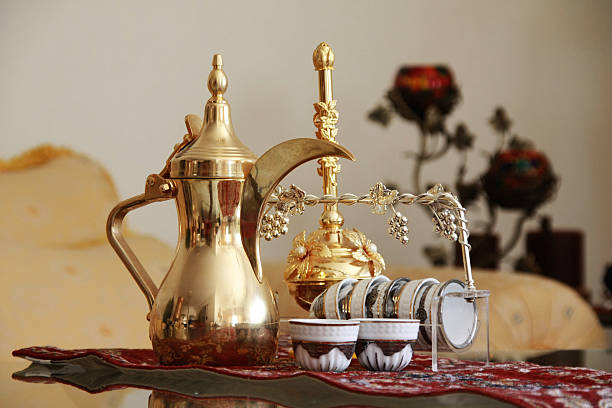Yalla Choy is a phrase mixing Arabic and playful slang. This article explains its meaning, where it comes from, and how people use it online and offline.
Introduction
“Yalla Choy” isn’t an old traditional phrase. It’s new, casual, and still shaping its meaning. You’ll see it on blogs, social media captions, even in gaming chats. The two words come from different roots, and together they form something catchy enough to travel across cultures. To understand it, it makes sense to look at the parts first and then the way people use it today.
Breaking Down the Words

Yalla
“Yalla” is the simple part. It’s common in Arabic-speaking countries. It means “let’s go” or “come on.” People use it to tell friends to move faster, to push things along, or just as a casual nudge. It comes from “Ya Allah,” which literally calls on God, but in modern casual use it has nothing religious about it. It’s quick, sharp, and understood widely, even by non-native speakers who have picked it up through music, travel, or social media.
Choy
The second half, “Choy,” doesn’t have one locked meaning. In some places, it’s used like “chai” (tea). In English contexts, it reminds people of bok choy, a leafy green vegetable common in Asian cooking. It’s also a surname in some cultures. On its own, it’s vague. But when put next to “Yalla,” it works more like a sound that fits rhythmically, almost playful.
The Combined Phrase: Yalla Choy
So what happens when you glue them together? You get “Yalla Choy.” The literal translation doesn’t exist. It’s not in Arabic dictionaries. The sense comes from how people use it. Most of the time, it’s casual hype. It could mean “let’s go, tea time,” or “come on, fun time,” or simply be a joke phrase with no fixed translation. What matters is tone. People throw it around to sound energetic, to give a light-hearted push, or to brand something as quirky.
Why It’s Catching On
- Cross-Cultural Sound
It mixes an Arabic base with a word that feels Asian. That makes it sound international, almost borderless. It feels at home in a chat between friends from different places. - Short and Memorable
Two quick syllables. Easy to say. Easy to type. That’s part of why it spreads online. - Flexible Use
Because “Choy” doesn’t tie down the meaning, people bend it to whatever context they want. It can mean tea, greens, fun, or nothing. The looseness helps it stick. - Fits Online Culture
Memes, captions, hashtags—phrases like this thrive in digital spaces. It’s fun, not serious, and easy to repeat.
Practical Uses of Yalla Choy
In Daily Speech
A group of friends deciding to leave might say it. Instead of “Yalla” alone, someone adds “Choy” for humor. It lightens the mood without changing the function.
On Social Media
People post pictures with the caption “Yalla Choy” to signal energy, movement, or just to add a curious phrase that makes followers pause. Hashtags with it are popping up more, especially in lifestyle and food content.
In Gaming
Gamers often shout or type “Yalla!” to move the team forward. Adding “Choy” makes it unique, more like an inside joke or a personal stamp.
Branding Potential
Some articles suggest it could be used for a café name, a merch line, or even slogans. “Yalla Choy” on a mug makes sense if you want to blend humor with cultural mash-up. It’s short enough to look good on logos.
Cultural Layers Behind the Phrase
Arabic Influence
“Yalla” carries the urgency and group spirit of Arabic speech. It’s widely understood even outside the region now.
Asian Influence
“Choy” ties to food—tea or greens. That brings a softer, homely layer. So the phrase carries both push (Yalla) and comfort (Choy).
Online Remix Culture
Neither word is new, but the way they’re combined is. The internet thrives on remixing languages and sounds into new expressions. That’s where “Yalla Choy” sits—an invention of playful mash-up.
Why People Use It Instead of Just “Yalla”
“Yalla” alone is functional. It pushes action. Adding “Choy” makes it lighter. It turns a command into something fun. That’s why it’s spreading: it softens the tone, makes it more about play than urgency.
Examples of Usage
- Friend group leaving a restaurant:
Someone says, “Yalla Choy, let’s move.” - Gaming team chat:
“Enemies spotted, Yalla Choy, rush mid.” - Instagram caption under a food photo:
“Morning tea vibes. Yalla Choy.” - Merch slogan:
A tote bag that says, “Yalla Choy Every Day.”
These are not official translations. They show the flexibility of the phrase.
Risks of Misunderstanding
Because it’s not a fixed phrase, some people may take it literally. Someone might think it means “let’s go bok choy” or “let’s drink tea.” That’s fine in playful contexts, but in serious situations it could confuse. If used in branding, it needs clear context so customers don’t misinterpret.
The Spread in Media
Recent articles from blogs like Vents Magazine, Uplarn, and NewsTaker all highlight how the phrase is picking up attention. They point to the mix of cultures and the catchy sound. None claim it has one strict definition. Instead, they describe it as a cultural trend that reflects how modern slang evolves across platforms.
Why It Matters
It shows how language today isn’t just about traditional use. It’s shaped by online play, remixing, and speed. “Yalla Choy” didn’t come from literature or religion. It came from casual mixes, spread by blogs and social media. That’s why people want to talk about it.
Common Mistakes People Make with Yalla Choy
- Assuming It Has One Translation
It doesn’t. Trying to pin it down misses the point. - Using It in Formal Settings
It’s not appropriate for work emails or official talks. It’s casual, slang-like. - Over-Explaining It
The charm is in its vagueness. Over-definition kills the humor. - Treating It as Traditional
Some assume it’s old Arabic slang. It’s not. It’s modern and mixed.
Comparison with Similar Slang
Think of phrases like “Vamos” in Spanish or “Ganbatte” in Japanese. Those carry energy. But they have fixed meanings. “Yalla Choy” is different because the second half is floating. That’s why it stands out.
Future of the Phrase
Slang comes and goes. Some stay, some disappear. “Yalla Choy” has potential to last longer because it’s short, catchy, and adaptable. But it may also stay in niche circles if it doesn’t spread into mainstream media. Branding could decide that. If cafés or lifestyle brands adopt it, it might stick around for years.
FAQs
Q1: Is Yalla Choy Arabic?
Partly. “Yalla” is Arabic. “Choy” is not. Together, they’re a mix.
Q2: Does it literally mean something?
No fixed meaning. It’s context-based.
Q3: Can I use it casually with friends?
Yes. It works best in informal settings.
Q4: Is it offensive?
No. It’s playful. But always consider the group you’re speaking to, as slang can confuse.
Q5: Where did it start?
There isn’t a single origin point. It’s popularized by blogs and social media.
Conclusion
“Yalla Choy” is not traditional, not dictionary-backed, and not meant to be serious. It’s a phrase born from mixing cultures, sounding catchy, and finding a place in digital spaces. People use it for fun, to lighten commands, to brand content, or just to make captions stand out. Its rise shows how fast casual language evolves today. Whether it lasts or fades, right now it represents how global slang works: short, playful, and border-crossing.
Author Bio
Jordon writes about language, digital culture, and modern slang. He focuses on how words shift across platforms and cultures, and why new expressions matter in online and offline life.

